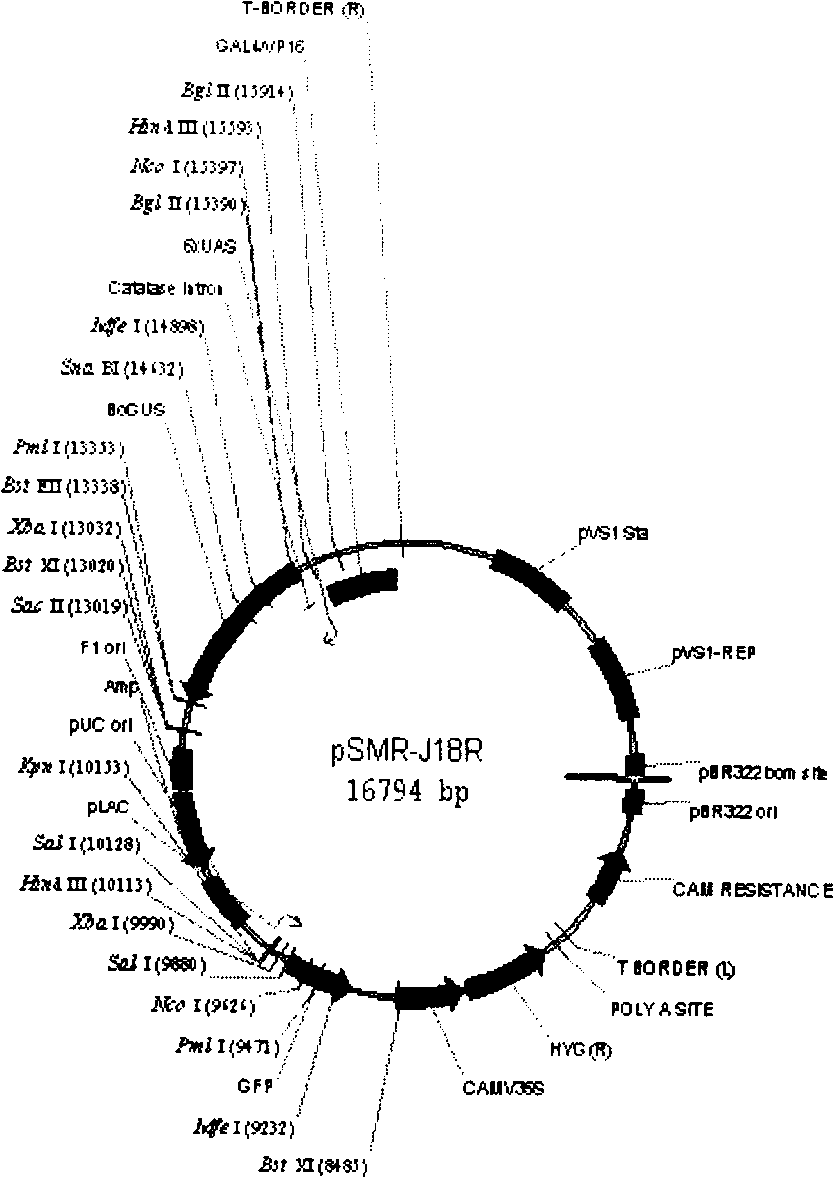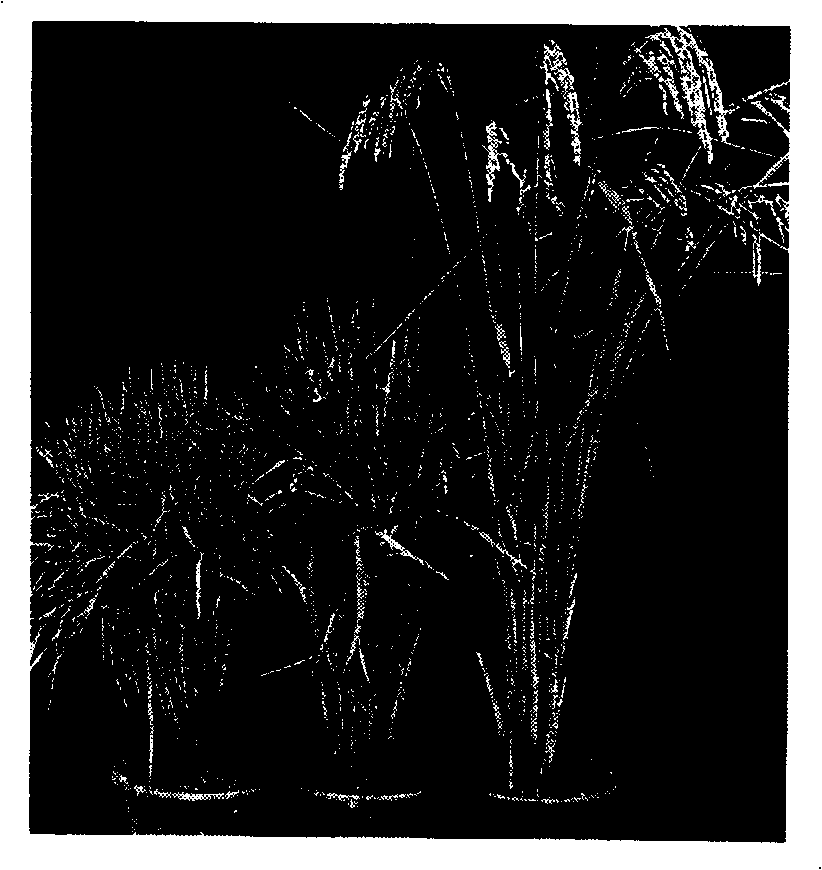Gene for controlling paddy tillering and usage
A gene and rice technology, applied in the direction of genetic engineering, plant genetic improvement, application, etc., can solve the problems of rice yield increase, plant tillering molecular mechanism is not clear, etc., to achieve fast and efficient results
- Summary
- Abstract
- Description
- Claims
- Application Information
AI Technical Summary
Problems solved by technology
Method used
Image
Examples
Embodiment 1
[0042] Example 1: Isolation and cloning of the Osa-MIR156e gene
[0043] 1. Create a mutant library (T0 generation)
[0044] The vector pSMR-J18R used was donated by CAMBIA Laboratory (Center for the Application of Molecular Biology to International Agriculture) in Australia, such as figure 1 , T-DNA (including Enhancer Trap) was randomly inserted into the genome of the japonica rice variety Oryza sativa L.subsp.japonica cv.Zhonghua 11 in a manner mediated by Agrobacterium EHA105 (Springer P S. Gene Traps: Tools for plant development and genomics. Plant Cell, 2000, 12: 1007-1020) to create mutant libraries. The mutant library was constructed according to the method described by Wu et al. (Wu C et al., Development of enhancer trap lines for functional analysis of the rice genome. Plant J, 2003, 35: 418-427). About 100,000 independent transformants have been obtained so far.
[0045] 2. Field screening of T1 generation tillering traits
[0046] 3000 copies of T1 generation ...
Embodiment 2
[0071] Example 2: Functional Verification and Application of Osa-MIR156 Gene
[0072] 1. Construction of genetic transformation vector
[0073] The vector used is pU1301 constructed in our laboratory. pU1301 is a commonly used plant genetic transformation vector pCAMBIA1301 in the world (Sun et al., 2004, Xa26, a gene conferring resistance to Xanthomonas oryzaepv.oryzae in rice, encoding a LRR receptor kinase-like protein. Plant Journal.37: 517-527) An Agrobacterium-mediated genetic transformation vector carrying a maize ubiquitin promoter with constitutive and overexpression characteristics rebuilt on the basis of Figure 7 ). The pCAMBIA1301 vector was kindly provided by the Australian CAMBIA Laboratory (Center for the Application of Molecular Biology to International Agriculture). Using the PCR method, directly amplify the target gene SEQ.ID.No.1 from the rice genome, the total volume of the PCR reaction system is 20μl, the rice genome DNA template 1ul (about 50ng), 1×Ta...
PUM
 Login to View More
Login to View More Abstract
Description
Claims
Application Information
 Login to View More
Login to View More - R&D
- Intellectual Property
- Life Sciences
- Materials
- Tech Scout
- Unparalleled Data Quality
- Higher Quality Content
- 60% Fewer Hallucinations
Browse by: Latest US Patents, China's latest patents, Technical Efficacy Thesaurus, Application Domain, Technology Topic, Popular Technical Reports.
© 2025 PatSnap. All rights reserved.Legal|Privacy policy|Modern Slavery Act Transparency Statement|Sitemap|About US| Contact US: help@patsnap.com



